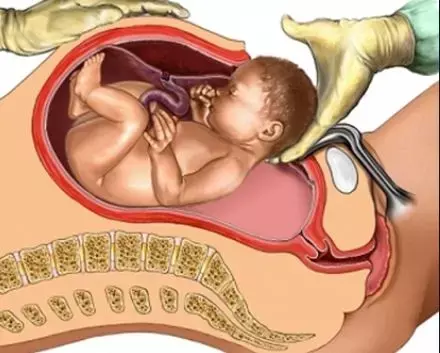- Home
- Medical news & Guidelines
- Anesthesiology
- Cardiology and CTVS
- Critical Care
- Dentistry
- Dermatology
- Diabetes and Endocrinology
- ENT
- Gastroenterology
- Medicine
- Nephrology
- Neurology
- Obstretics-Gynaecology
- Oncology
- Ophthalmology
- Orthopaedics
- Pediatrics-Neonatology
- Psychiatry
- Pulmonology
- Radiology
- Surgery
- Urology
- Laboratory Medicine
- Diet
- Nursing
- Paramedical
- Physiotherapy
- Health news
- Fact Check
- Bone Health Fact Check
- Brain Health Fact Check
- Cancer Related Fact Check
- Child Care Fact Check
- Dental and oral health fact check
- Diabetes and metabolic health fact check
- Diet and Nutrition Fact Check
- Eye and ENT Care Fact Check
- Fitness fact check
- Gut health fact check
- Heart health fact check
- Kidney health fact check
- Medical education fact check
- Men's health fact check
- Respiratory fact check
- Skin and hair care fact check
- Vaccine and Immunization fact check
- Women's health fact check
- AYUSH
- State News
- Andaman and Nicobar Islands
- Andhra Pradesh
- Arunachal Pradesh
- Assam
- Bihar
- Chandigarh
- Chattisgarh
- Dadra and Nagar Haveli
- Daman and Diu
- Delhi
- Goa
- Gujarat
- Haryana
- Himachal Pradesh
- Jammu & Kashmir
- Jharkhand
- Karnataka
- Kerala
- Ladakh
- Lakshadweep
- Madhya Pradesh
- Maharashtra
- Manipur
- Meghalaya
- Mizoram
- Nagaland
- Odisha
- Puducherry
- Punjab
- Rajasthan
- Sikkim
- Tamil Nadu
- Telangana
- Tripura
- Uttar Pradesh
- Uttrakhand
- West Bengal
- Medical Education
- Industry
Enhanced Recovery Approach to Cesarean Delivery improves outcomes, claims study

The enhanced recovery after surgery (ERAS) approach for the cesarean delivery population is associated with improved outcomes including decreases in opioid use, length of stay, and cost, suggests a new study recently published in Obstetrics & Gynecology.
Enhanced recovery after surgery (ERAS) is a concept that combines various evidence-based aspects of perioperative care to accelerate patient recovery. It standardizes perioperative management and achieves a reproducible improvement in the quality of care. The principles of enhanced recovery cover the entire perioperative care pathway and component interventions occur during the preoperative, intraoperative, and postoperative phases of care.
With increased pressure on maternity services, several centers in Europe have begun implementing ERAS protocols for scheduled cesarean delivery, and this concept has recently started to gain popularity globally.
With this in mind, Mullman et al at the Departments of Clinical Excellence, Biostatistics, Obstetrics and Gynecology, New Jersey, undertook a study to examine the results of a quality-improvement study that implemented an enhanced recovery after surgery (ERAS) program for cesarean delivery.
The research team implemented a pre-post design to assess changes in opioid use, length of stay, and costs among all patients undergoing cesarean delivery before and after implementation of an evidence-based ERAS pathway for the preoperative, intraoperative, and postoperative management of patients beginning December 2018.
The sample population consisted of A total of 3,679 cesarean deliveries (scheduled and emergent) were included from January 1, 2018, through August 31, 2019, of which 2,171 occurred before implementation on December 17, 2018, and 1,508 occurred postimplementation.
On analysis, the following results emerged.
- Eighty-four percent of patients received opioids as inpatients after cesarean delivery during the pre-implementation period, as compared with 24% in the postimplementation period (odds ratio [OR] 16.8, 95% CI 14.3–19.9).
- Among patients who required any opioids, the total morphine milligram equivalents also significantly decreased (median 56.5 vs 15.0, mean relative change 0.32, 95% CI 0.28–0.35). Compared with the pre-implementation period, those in the postimplementation period had a shorter postcesarean length of stay (3.2 vs 2.7 days, mean relative change 0.82, 95% CI 0.80–0.83, median 3 days in both periods), lower median direct costs by $349 (mean relative change 0.93, 95% CI 0.91–0.95), and no change in the 30-day readmission rate (1.4% vs 1.7%, OR 0.83, 95% CI 0.49–1.41).
For the full article, click on the link : DOI: 10.1097/AOG.0000000000004023
Primary source: Obstetrics & Gynecology
Dr Satabdi Saha (BDS, MDS) is a practicing pediatric dentist with a keen interest in new medical researches and updates. She has completed her BDS from North Bengal Dental College ,Darjeeling. Then she went on to secure an ALL INDIA NEET PG rank and completed her MDS from the first dental college in the country – Dr R. Ahmed Dental College and Hospital. She is currently attached to The Marwari Relief Society Hospital as a consultant along with private practice of 2 years. She has published scientific papers in national and international journals. Her strong passion of sharing knowledge with the medical fraternity has motivated her to be a part of Medical Dialogues.
Dr Kamal Kant Kohli-MBBS, DTCD- a chest specialist with more than 30 years of practice and a flair for writing clinical articles, Dr Kamal Kant Kohli joined Medical Dialogues as a Chief Editor of Medical News. Besides writing articles, as an editor, he proofreads and verifies all the medical content published on Medical Dialogues including those coming from journals, studies,medical conferences,guidelines etc. Email: drkohli@medicaldialogues.in. Contact no. 011-43720751


